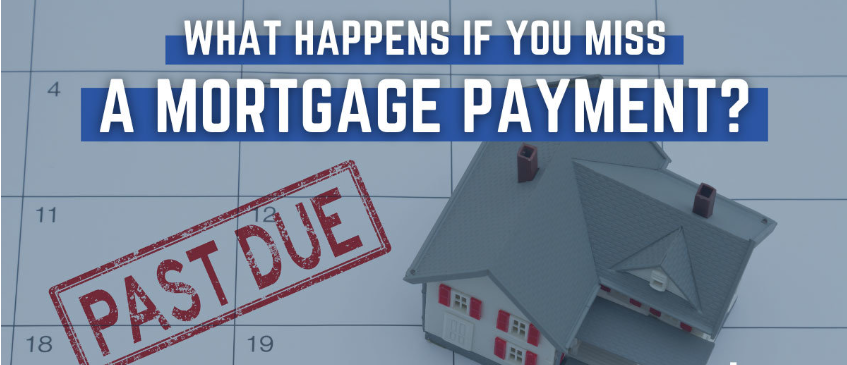What Happens If You Miss a Mortgage Payment?
Missing a mortgage payment can be a stressful experience but it’s more common than you might think. Whether it’s due to unexpected expenses, job loss, or simple oversight, it’s important to understand what happens when you miss a payment and what steps you can take to recover.
In this post, we’ll break down the timeline of consequences, potential impacts on your credit, and what you should do if you’re struggling to pay.
What Happens After You Miss a Mortgage Payment?
1. Grace Period (Typically 10–15 Days)
Most mortgage lenders offer a grace period usually around 15 days after your due date. If you make your payment within this window, there’s typically no penalty or late fee.
Example: If your payment is due on the 1st, you may have until the 15th to pay without consequence.
2. Late Fee Kicks In
After the grace period, you’ll likely be charged a late fee, which is usually 4–5% of the missed payment. Your lender may also begin trying to contact you.
3. 30 Days Late – Credit Score Impact
Once you’re 30 days past due, your lender can report the missed payment to the credit bureaus. This can:
-
Lower your credit score by 50–100 points or more
-
Stay on your credit report for up to 7 years
Tip: Even one missed payment can seriously damage your credit, especially if you’ve had a strong payment history.
4. 60–89 Days Late – More Risk, More Damage
By this stage:
-
You’ll likely be hit with additional late fees
-
Your credit will take further hits
-
Your lender may send default notices
-
You may receive collection calls or letters
5. 90+ Days Late – Foreclosure Risk Begins
If your account is 90 days past due, you’re considered seriously delinquent. Lenders may:
-
Start foreclosure proceedings (depending on state laws)
-
Demand full repayment of the loan (acceleration clause)
-
Refer your loan to a collections department or legal team
What Is Foreclosure?
Foreclosure is the legal process by which your lender takes ownership of your home due to non-payment. It can take several months, but the process may begin as soon as 90 days of missed payments.
Consequences of Foreclosure:
-
Loss of your home
-
Significant damage to your credit score
-
Difficulty buying another home in the future
-
Potential legal and financial liabilities
How Does a Missed Payment Affect Your Credit?
| Days Late | Impact on Credit |
|---|---|
| 0–29 | No credit impact (but late fees may apply) |
| 30+ | Reported to credit bureaus |
| 60–90 | Major credit score drop, more severe delinquency |
| 90+ | Long-term damage and potential foreclosure |
Even if you catch up later, the late payment stays on your credit report for up to 7 years.
What to Do If You Miss a Mortgage Payment
✅ 1. Contact Your Lender Immediately: What Happens If You Miss a Mortgage Payment?
Let your lender know what happened. The sooner you call, the more options you’ll have. Many lenders offer:
-
Temporary payment plans
-
Loan modifications
-
Forbearance programs
✅ 2. Catch Up If You Can
If it’s a one-time mistake, try to make the payment (plus any fees) as soon as possible—ideally before it hits 30 days past due.
✅ 3. Review Your Finances
Create a budget to avoid missing payments in the future. Identify areas where you can reduce expenses or boost income.
✅ 4. Avoid Skipping Without Communication
Ignoring the problem will only make it worse. Foreclosure can happen faster than you think, especially if you don’t respond to lender notices.
✅ 5. Consider Professional Help
Reach out to a HUD-approved housing counselor or nonprofit credit counselor. They can help you work with your lender and explore all available solutions.
Common Reasons People Miss Payments: What Happens If You Miss a Mortgage Payment?
-
Job loss or reduced income
-
Medical emergencies
-
Divorce or separation
-
Rising living expenses
-
Poor budgeting or forgotten due dates
Remember, lenders would rather help you stay in your home than go through the foreclosure process. You have more options than you think especially if you act early.
Final Thoughts on What Happens If You Miss a Mortgage Payment?
Missing a mortgage payment is serious, but it’s not the end of the world if you act quickly. The key is communication. Don’t wait until things spiral out of control. A proactive approach can help you protect your credit, keep your home, and get back on track.


